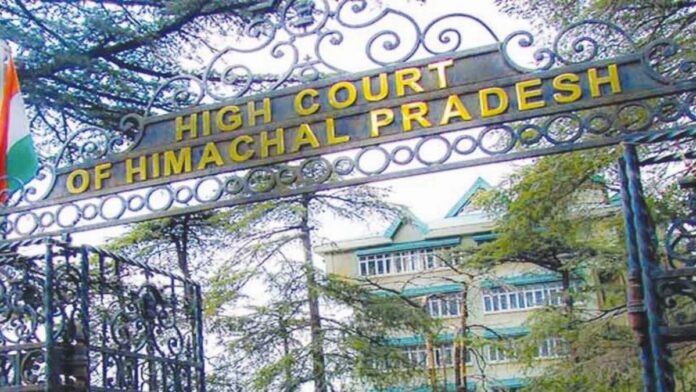The Himachal Pradesh High Court on Monday expressed concern over non-appointment of regular teachers by successive governments and said the state is “trying to save money by sucking blood” of the helpless unemployed youth who are compelled to accept any term of appointment.
The high court rejected the state government’s appeal against quashing of the government order of August 27, 2007 denying the benefit of Parent Teacher Association (PTA) Rules, 2006, to those engaged in schools in urban areas.
It stated that the government order has rightly been quashed by the single judge vide its judgment passed on September 29, 2020.
A bench of Justices Vivek Singh Thakur and Sandeep Sharma observed that despite repeated directions by the courts to the state to provide regular teachers in schools, the state governments, irrespective of persons in power, failed to follow the directions and to appoint regular teachers.
The state is trying to save money by sucking blood of poor helpless unemployed youth, compelled to accept any term imposed upon them to earn something not for dignified livelihood but for survival, it stated.
The bench said that “under compelling circumstances, PTAs are constrained to engage teacher(s) to save the future of children and found that the PTA teachers serving in rural or urban areas are of the same class and the classification amongst them is not intelligible.”
The state government had formulated the Parent Teacher Association Rules, 2006 for providing grant-in-aid to the PTA teachers serving in all schools of the state but vide its communication of August 27, 2007, the government declared the benefit is inadmissible to the PTA teachers serving in the schools situated in the area of municipal corporations, municipal committees and nagar panchayats of the state.
“PTA teachers in urban as well as rural areas are appointed for identical reasons and perform identical job with equal degree of accountability and responsibility and termed the classification of PTA teachers as discriminatory and one more example of exploitative policies formulated and adopted by the state,” the court said.




